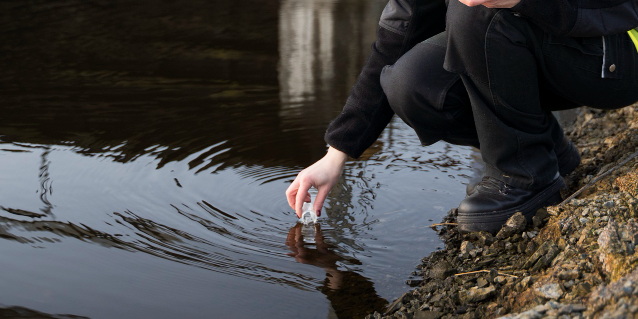Rainwater management is a primary focus in efforts to preserve the environment and ensure sustainable water resources. According to the World Health Organization (WHO), humans need at least 50 liters of water per day to meet basic needs.
Managing rainwater on campus is an essential part of maintaining environmental sustainability and water resource management. The Faculty of Dentistry at Universitas Gadjah Mada (FKG UGM) is striving to utilize rainwater as a reusable resource.
Buana Yaksa Surya Atmaja, the Coordinator of Facilities and Infrastructure at FKG UGM, stated that the rainy season has now begun. He emphasized that managing rainwater on campus is a crucial step in preserving the environment and ensuring sustainable water resources. “By implementing an eco-friendly drainage system and utilizing rainwater for non-potable, we not only reduce the risk of flooding but also contribute to the efficient use of resources,” Buana said on September 26.
Non-potable refers to water that is not safe or suitable for drinking. non-potable water can be used for other purposes, such as watering gardens, flushing toilets, and cooling HVAC systems, but it is not safe for human consumption. The use of non-potable water helps reduce dependence on clean water sources and supports more sustainable water resource management.
Buana noted that with a simple yet efficient storage system, this initiative is expected to lessen reliance on clean water from external sources and reduce the operational costs of the campus.
The development of green spaces and gardens on campus is also part of this initiative. Gardens with diverse vegetation not only beautify the campus environment but also serve as natural rainwater catchments. Rain Gardens will provide a creative solution for managing rainwater naturally while enhancing the campus's aesthetic value.
Finally, the management of rainwater will involve ongoing monitoring and evaluation to ensure that the implemented systems function effectively. Data on the volume of captured water and the effectiveness of the drainage system will be analyzed periodically for future improvements.
Overall, this initiative contributes not only to environmental sustainability but also creates a learning space for students to engage directly in innovative and applicable environmental solutions.
Contributor: Buana Yaksa Surya Atmaja | Photo: Freepik

